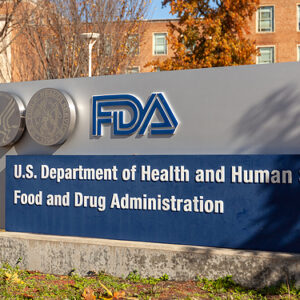On August 30, the Reason Foundation, a libertarian think tank, released a policy brief (“Focus on the FDA: Allowing the Market to Determine Effectiveness” ) that “reimagines” pharmaceutical regulation in the United States, with a goal of better serving society by encouraging the increased availability of life-saving drugs at lower prices.
The Food and Drug Administration is an agency within the Department of Health and Human Services responsible for assuring the safety, effectiveness, quality, and security of human and veterinary drugs, vaccines and other biological products, and medical devices, among other products.
Recently, however, critics have accused the agency — which regulates 20 percent of the U.S. consumer economy — of needlessly delaying the rollout of COVID-19 testing and slowing the life-saving drugs’ approval to patients.
The FDA occupies a strategic role not only for U.S. consumers regarding their accessibility of pharmaceuticals but also ensures the nation’s security and global competitiveness in medical vaccines, treatments and medical devices. Of the top 20 largest pharmaceutical companies in the world (based on 2021 drug sales revenue), 10 are U.S. pharmaceutical companies, including five of the top 10 — Johnson & Johnson (first at $93.77 billion), Pfizer (second at $81.29 billion), AbbVie (fourth at $56.2 billion), Merck (sixth at $48.7 billion), and Bristol Myers Squibb (seventh at $42.5 billion). These 10 U.S. pharmaceutical companies generated an astounding $440.4 billion in revenues in 2021.
To address FDA regulatory shortcomings and to accelerate and encourage the pharmaceutical development of innovative products, the Reason Foundation offers four policy recommendations.
First, repeal the 1962 Efficacy Amendment. This repeal will have no adverse effect on pharmaceutical safety protocols. The potential effectiveness of pharmaceuticals is best evaluated by medical professionals (at the patient level) and professional associations (in the aggregate).
Today, physicians already perform this function by prescribing medications for off-label use. The original “safety” charge for the FDA needs to remain with the agency, as the FDA is regarded as an international “gold standard” for safe drugs.
Rather than repealing the 1962 Efficacy Amendment, the legislation should be amended to require the candidate pharmaceutical to favorably pass the Phase II clinical trials requirement involving 100 to 300 patient volunteers. This phase offers a favorable indication of efficacy without the costly and time-consuming Phase III studies required to fully assess pharmaceutical efficacy, thus reducing by as much as half the time (six years) compared to the existing average agency approval process (12 years).
Second, encourage private actors with financial liability to exercise greater oversight powers directly. Since the FDA assumes no legal liabilities for its decisions, this authority should be passed to parties that bear financial liability, such as health insurers and managed care agencies, who recommend courses of treatment and are arguably better positioned to evaluate the effectiveness of a pharmaceutical product. It is advisable to shift financial liability to “private actors” with a strong pecuniary interest in reducing their expenses, maximizing care effectiveness and passing some of the savings on to the consumer.
Third, make the FDA a certifier of certifiers. Privatize a substantial volume of the work currently performed by the FDA while allowing the agency to retain official oversight of those functions. The FDA could promulgate standards for private reviewers of clinical trial data and randomly audit the records of these reviewers. This recommendation is a cost-effective (and likely more timely) method of managing and using this important data for treatment effectiveness (and potential long-term safety issues that emerge).
Fourth, the FDA could reciprocally recognize the approvals issued by regulatory authorities in other advanced nations, such as the United Kingdom or the nations in the European Union. This will allow U.S. pharmaceutical manufacturers to conduct clinical trials in other nations. Carefully — and selectively — considering reciprocity agreements with specific advanced nations, such as the United Kingdom, for relevant safety-oriented studies should be piloted by the FDA.
The United States is the world leader in pharmaceutical research and development, largely due to strong intellectual property protections and legislation that incentivize risk-taking, reflected in most indices of R&D investment and innovation. From 2004 to 2018, U.S.-headquartered companies produced almost twice as many new drugs as their European counterparts, and three to four times as many as Japan. Yet, to maintain this global economic leadership and to ensure that the U.S. continues to respond to emerging public health challenges, the FDA actively embracing a 21st-century pharmaceutical regulatory regime is imperative for maintaining the nation’s future security and economic competitiveness.

